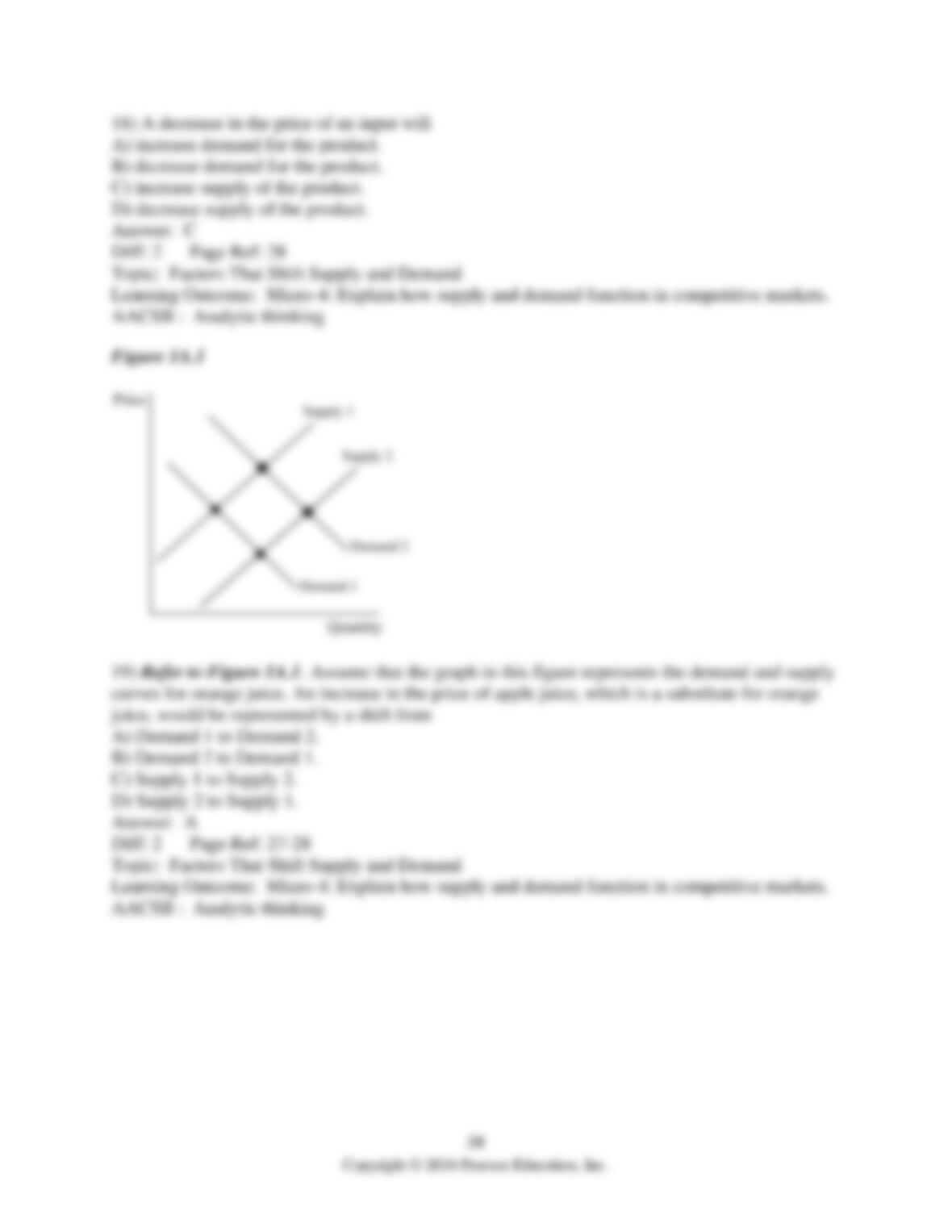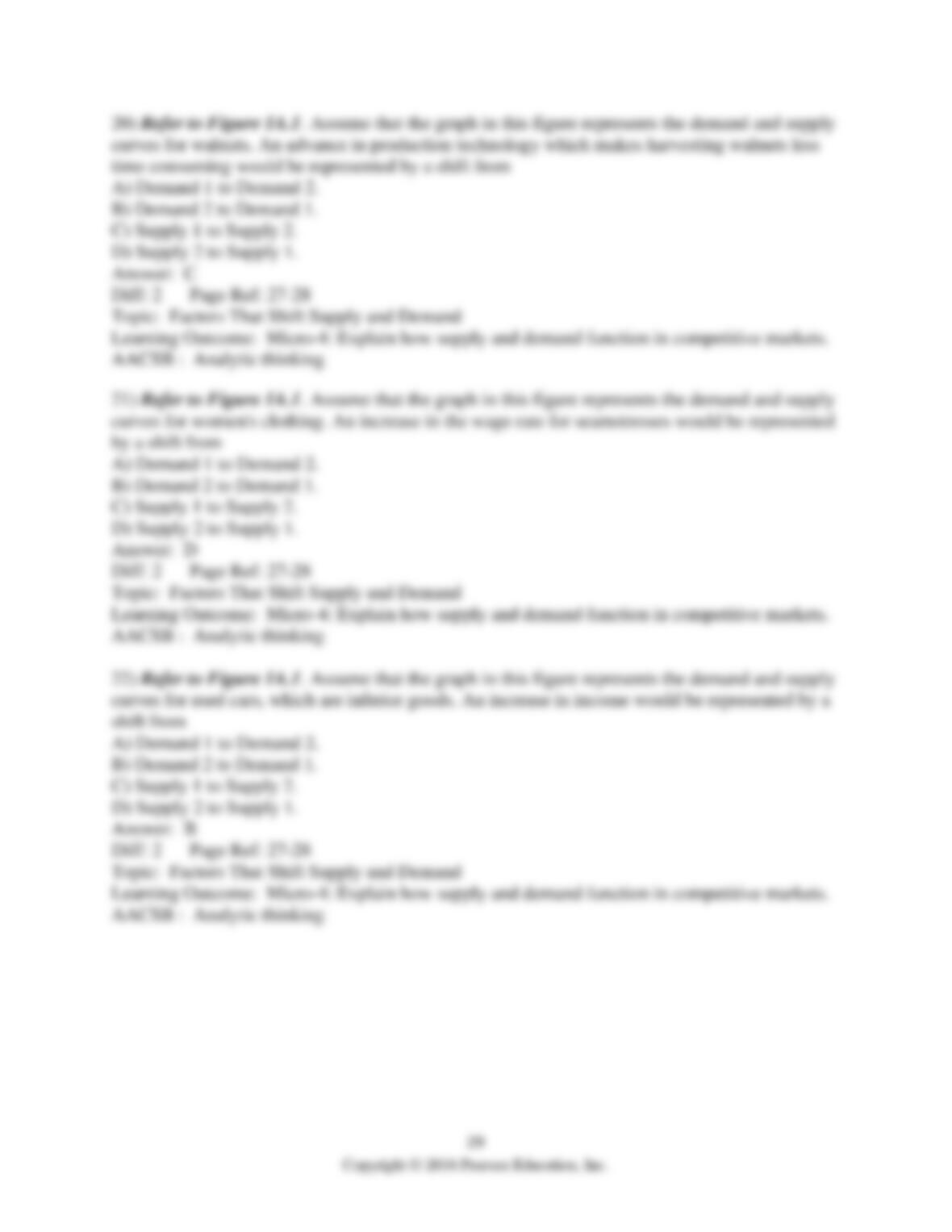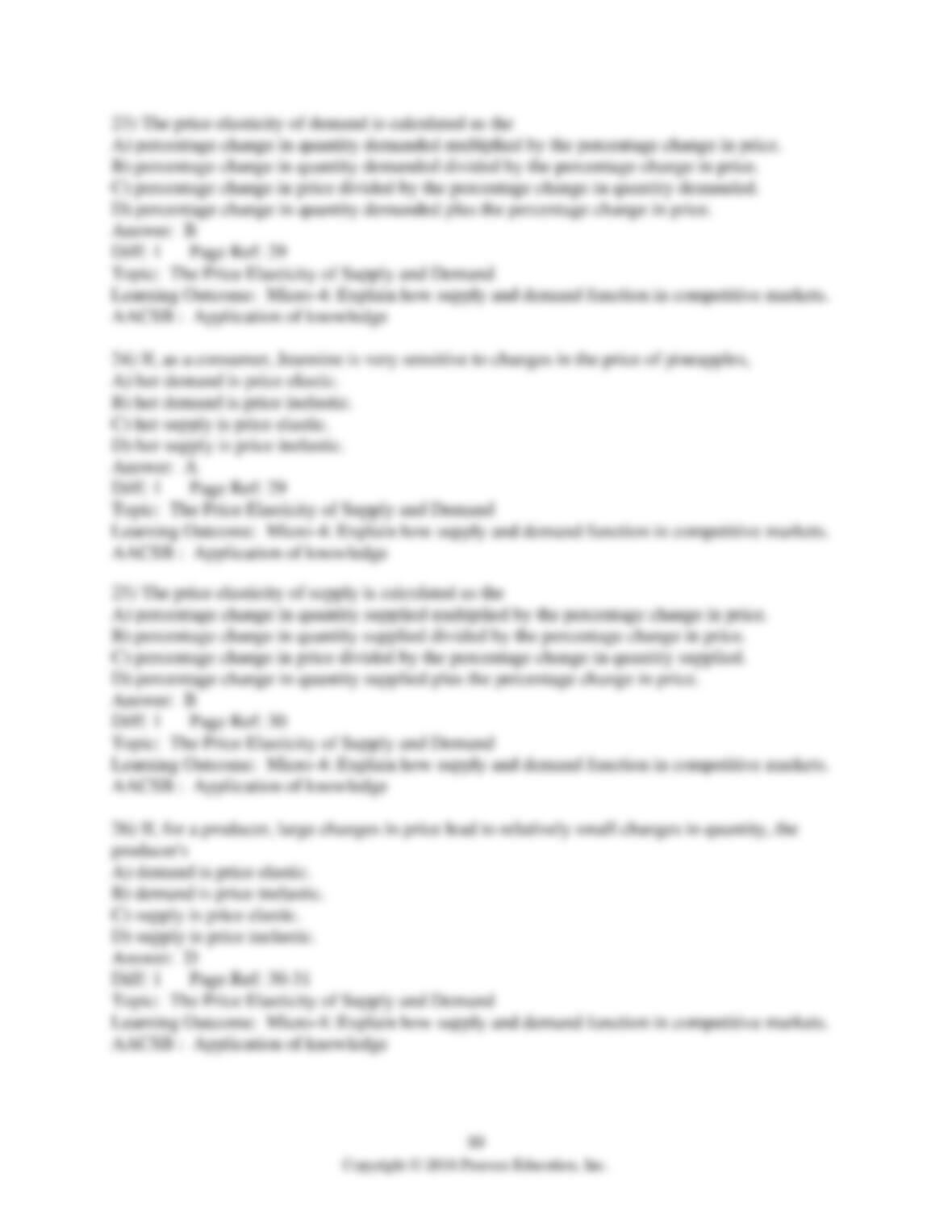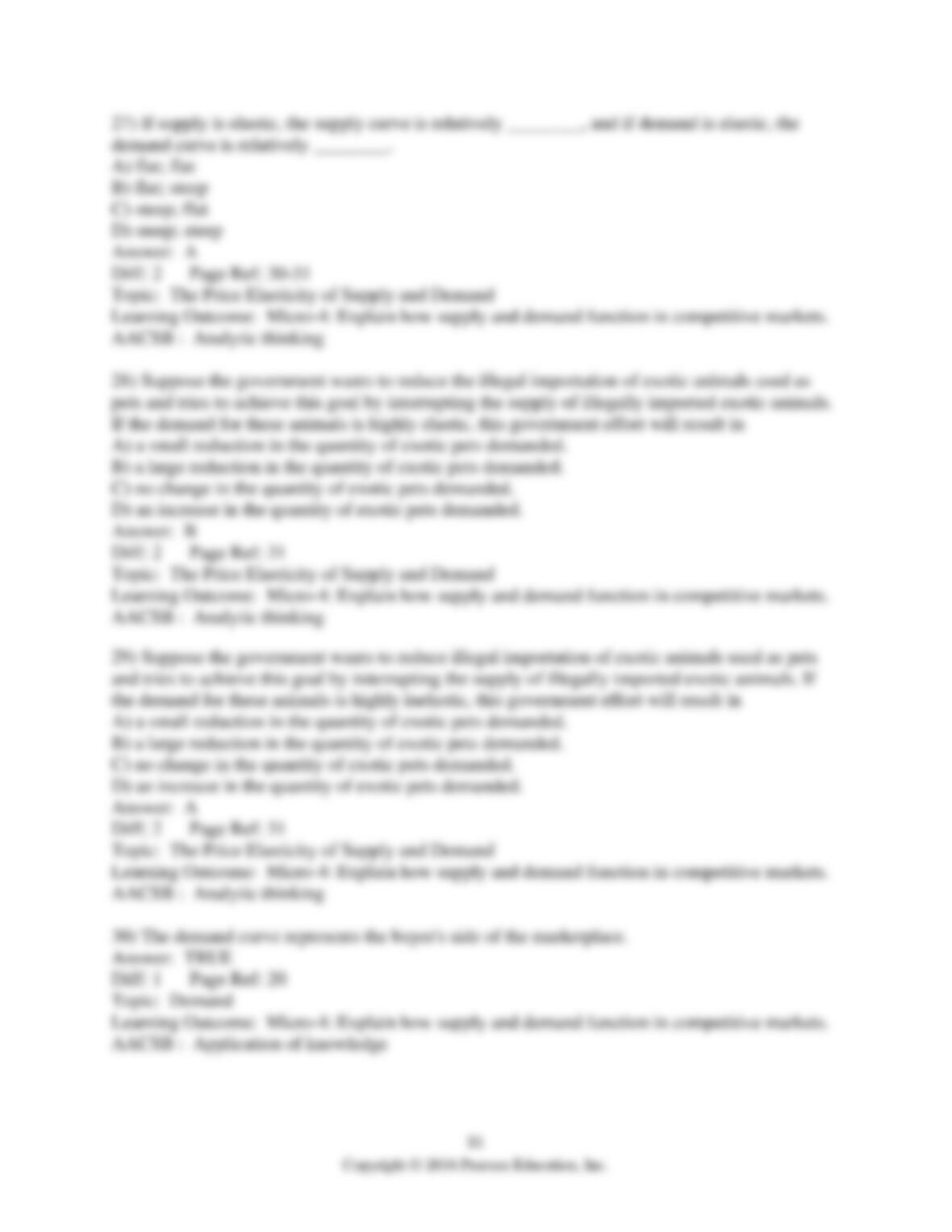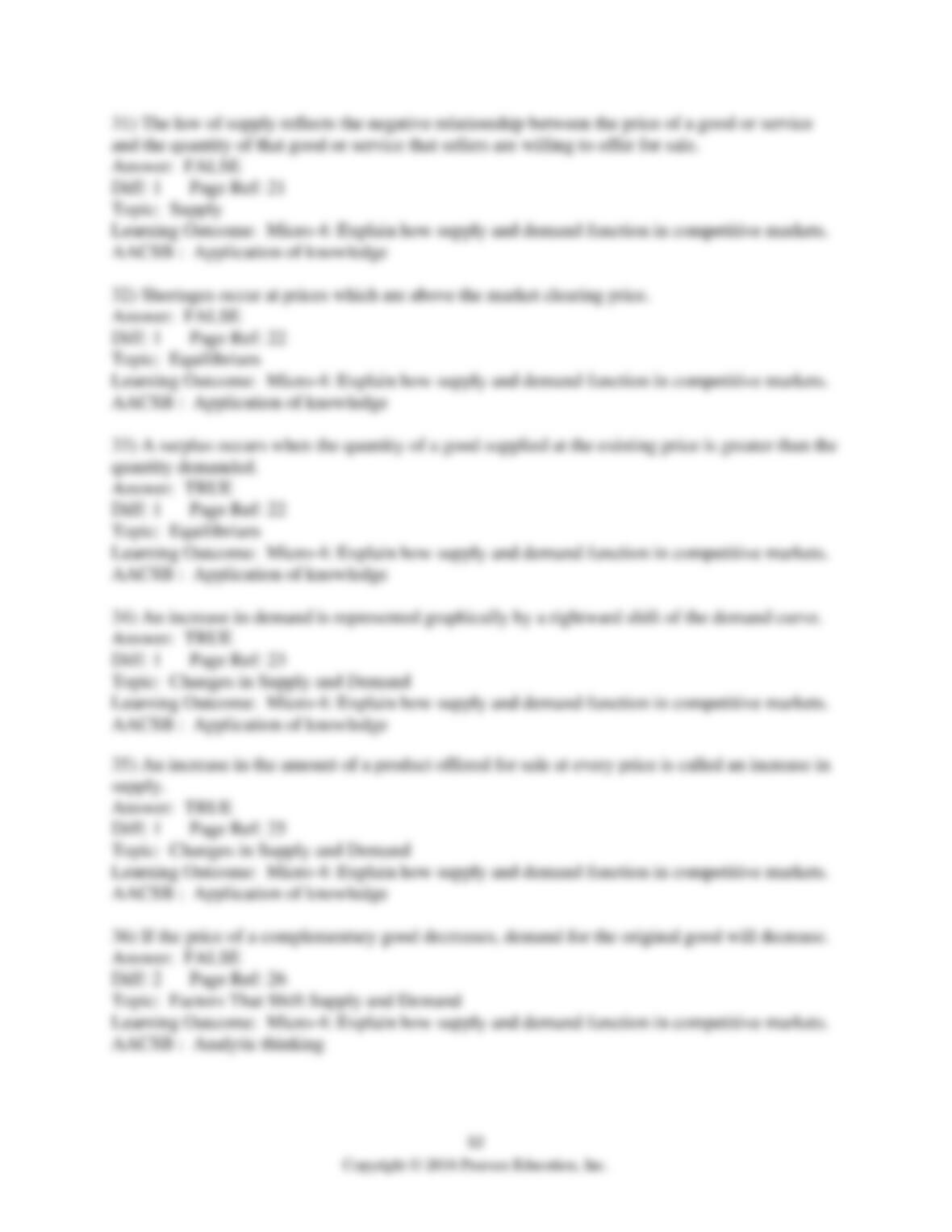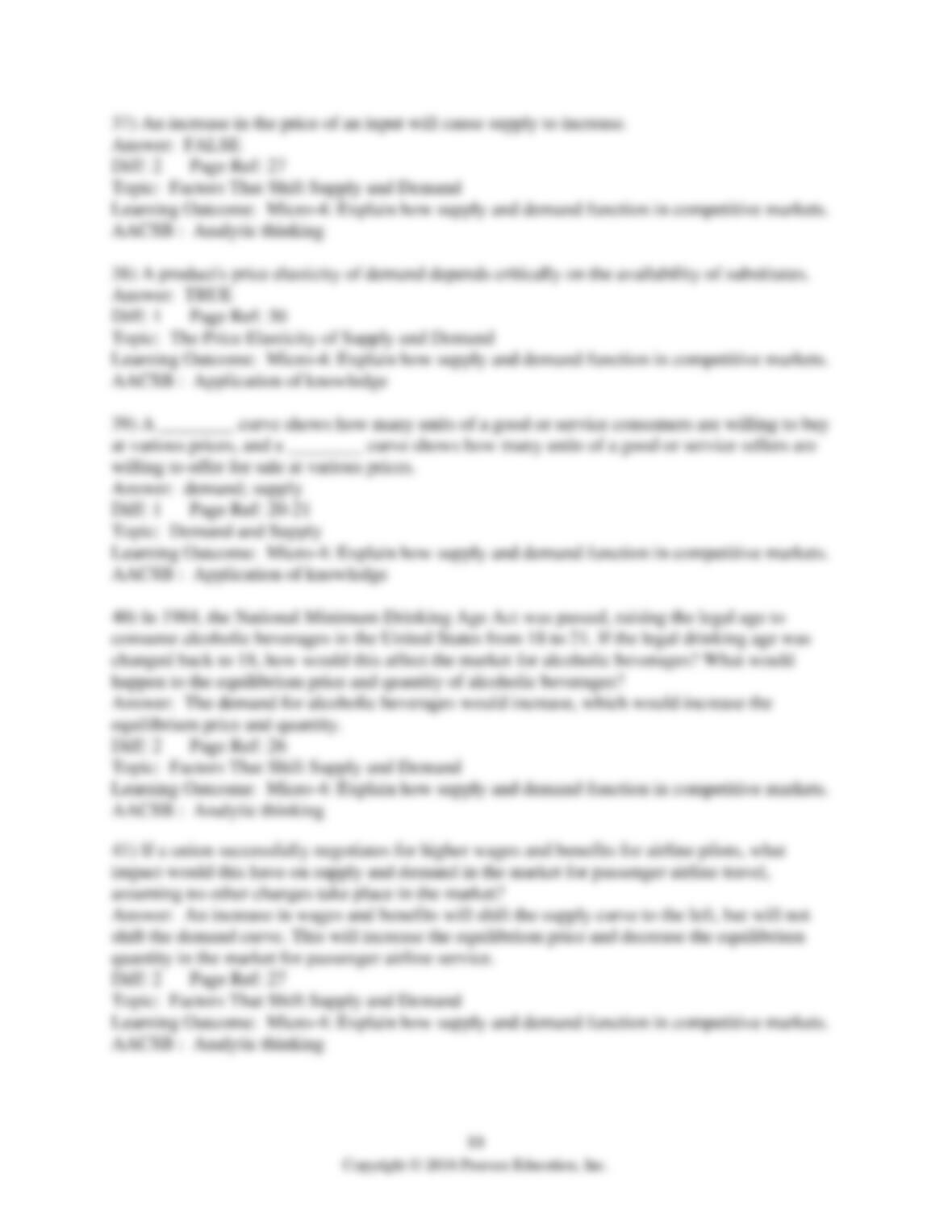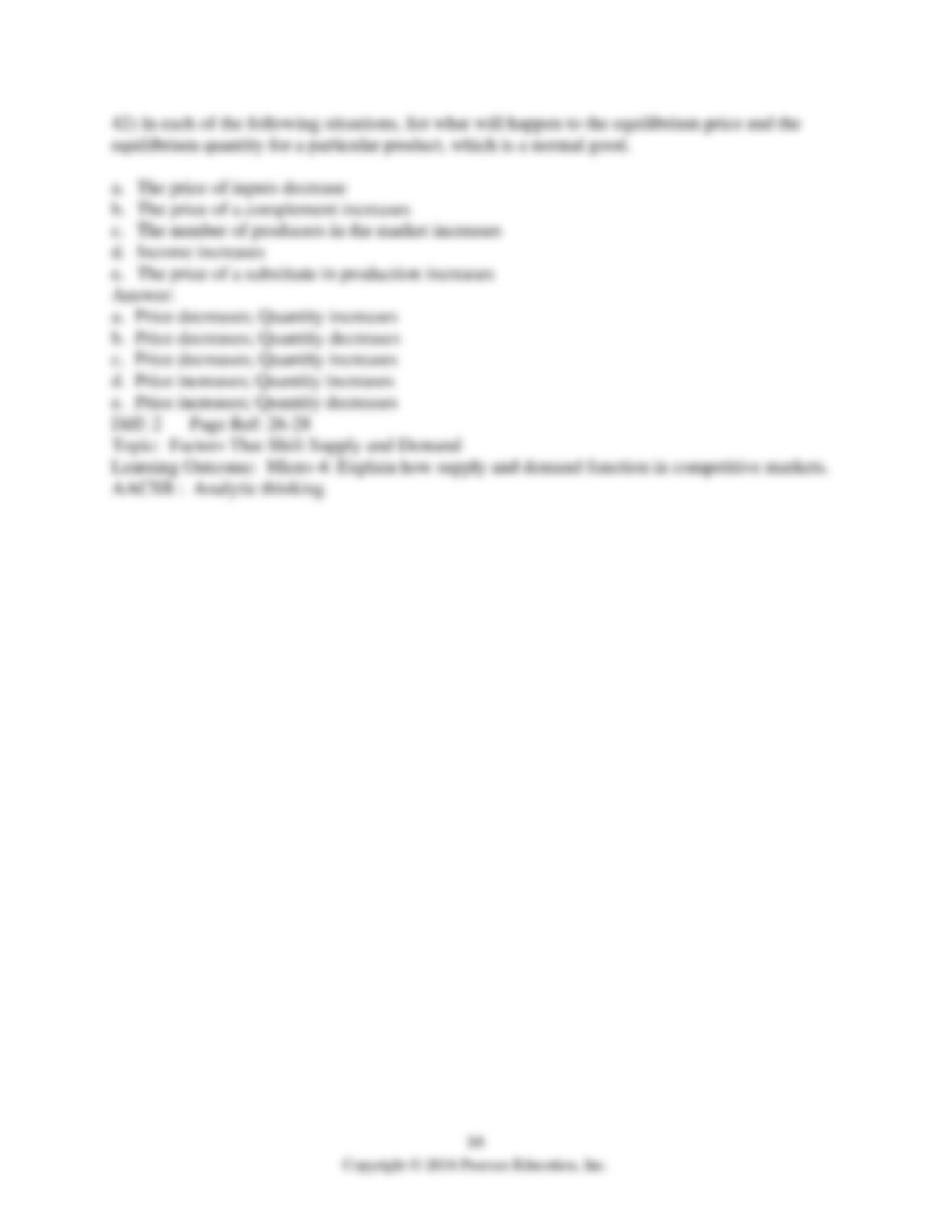2
Copyright © 2016 Pearson Education, Inc.
4) Which of the following is a key question that must be addressed by an economy?
A) What will be made with our resources?
B) How much will we spend producing products?
C) Where will we produce our products?
D) When should we produce our products?
Answer: A
Diff: 2 Page Ref: 3
Topic: Key Questions Every Economy Must Answer
Learning Outcome: Micro-1: Identify the basic principles of economics and explain how to
think like an economist.
AACSB : Application of knowledge
5) Which of the following is a key question that must be addressed by an economy?
A) Why should we produce a product?
B) When should we replenish out resources?
C) How will we distribute our products?
D) What should we do when we use up all our resources?
Answer: C
Diff: 2 Page Ref: 3
Topic: Key Questions Every Economy Must Answer
Learning Outcome: Micro-1: Identify the basic principles of economics and explain how to
think like an economist.
AACSB : Application of knowledge
6) In a market system, the ultimate decision about what to produce is left to
A) buyers.
B) the government.
C) sellers.
D) households.
Answer: C
Diff: 1 Page Ref: 3
Topic: Key Questions Every Economy Must Answer
Learning Outcome: Micro-3: Discuss different types of market systems and the gains that can be
made from trade.
AACSB : Application of knowledge
7) In a command economy, the ultimate decision about what to produce is left to
A) buyers.
B) the government.
C) sellers.
D) households.
Answer: B
Diff: 1 Page Ref: 3
Topic: Key Questions Every Economy Must Answer
Learning Outcome: Micro-3: Discuss different types of market systems and the gains that can be
made from trade.
AACSB : Application of knowledge





















